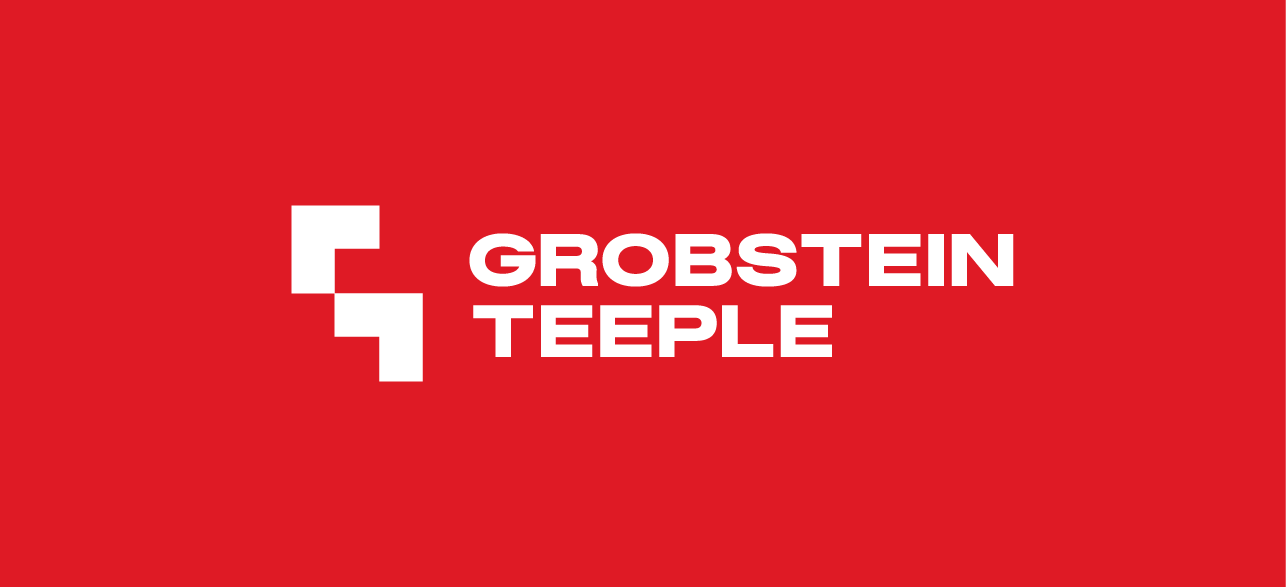

Do you know how to calculate business valuation accurately when there are competing interests involved? It’s a question Grobstein Teeple’s business valuation expert, William Thomsen, has been answering for his clients for years.
Have you ever wondered how business valuation is determined in lost profits damages cases?
As a valuation specialist, it’s something William Thomsen thinks about all the time.
The long-serving Grobstein Teeple Director has spent almost 40 years providing a range of highly specialized business valuation services.
He’s even contributed a chapter in the recently updated third edition of Shannon Pratt’s The Lawyer’s Business Valuation Handbook: Understanding Financial Statements, Appraisal Reports, and Expert Testimony.
It’s safe to say business valuation is a field Thomsen thinks about deeply, and one he’s long been recognized as an expert in.
He speaks regularly at conferences—including as an expert member of the Business Valuation Institute UK—founded our popular Valuation and Litigation Insights newsletter, and is known across the industry for his lively LinkedIn posts.
In short, Thomsen is a man who lives and breathes his work.
That’s good news for those wondering how to calculate business valuation accurately when not every party may be interested in arriving at the same conclusion.
Business Valuation That Delivers Clarity, Not Complexity
Having joined Grobstein Teeple in 2018, Thomsen not only assists business litigators and their clients by providing credible valuation opinions for shareholder and contract disputes and eminent domain litigation, but also acts as a highly-valued expert witness at trial, among his other services.
He says clients are looking for an experienced hand when it comes to seeking business valuation and litigation support.
“Very often we get involved in what is essentially a business dispute,” Thomsen said.
“It could be two shareholders arguing over when one was to buy the other one out, or arguing over the price, or something along those lines.”
As common as disputes can be, it’s not the only reason clients seek expert help on how to calculate business valuation.
“It could be a friendly transaction, like some sort of succession planning,” Thomsen explained.
“Otherwise, it might be that someone is suing for economic damages, such as lost value or reduced profits—which is the second area I really specialize in.”
He admits that when it comes to how to calculate business valuation with any degree of accuracy, there’s plenty of investigative work involved.
“If you’re dealing with a publicly-listed company, it’s a simple task of just looking up the stock price,” Thomsen says of how a business valuation typically begins.
“But if it’s for a private company, you’ve got to do some work to figure out what an investor would pay for it,” he added.
That’s especially the case when financial records are limited and certain interests may wish to drive down the value of a business.
Combining a Meticulous Approach With a Keen Eye for Detail
While accurately determining the value of a privately-owned business involves plenty of digging, Thomsen believes there’s no reason to keep his clients in the dark.
He compares objective data such as income with comparable market results, and utilizes a methodical nine-step process to procure the rest of the information required to produce a fact-based, detailed report that accurately informs decision-making.
That report can help business owners settle disputes, calculate damages, sell companies, engage in succession planning, and ultimately invest in new opportunities.
“I go into everything I do with the aim of solving a problem and achieving the desired outcome—not just writing a report,” Thomsen said.
“I want to see what the issues are and solve the problem in a way that is meaningful and helpful to each and every client.”
Combining a meticulous approach with a keen eye for detail, Thomsen says one of the keys to knowing how to calculate business valuation is channeling the right resources at the right time.
“I think what I bring to the table is the ability to size things up quickly, decide on the right course of action—and bring others in at the right time who might possess a slightly different set of skills—to provide the right outcome for my clients every time,” Thomsen said.
Respected Thought Leadership Informed by Decades of Experience
Spend any time on LinkedIn in the world of business valuation, and chances are you’ll come across some of Will’s posts.
An engaging and insightful poster, Thomsen has been sharing his thoughts on the inner workings of business valuation and litigation for years.
Holding an MBA in Finance from Columbia Business School and featuring regularly on the speaking circuit as a highly experienced lecturer and seminar host, Thomsen shares his knowledge with Grobstein Teeple and the broader valuation community on a regular basis.
In fact, he was recently one of the moderators of an expert online panel at the BVIUK 4th Virtual Expert Summit, where his topic was—not surprisingly—valuation methodologies.
You can follow Will and Grobstein Teeple on LinkedIn to keep up with all the latest news and insights from the world of business valuation.
And if you are looking for expert business valuation services, click here to book a call.
 Recent Insights
Recent Insights
-
 Trump and 2025 Tax Brackets: Here’s What We’re Advising our Clients to Watch Out ForTax & Compliance Industry Updates9 Jan 2025
Trump and 2025 Tax Brackets: Here’s What We’re Advising our Clients to Watch Out ForTax & Compliance Industry Updates9 Jan 20255 minute read
Many of our clients have asked us what will change—including whether there will be any changes to 2025 tax brackets—once president-elect Donald Tru...
-
 The Corporate Transparency Act Is on Hold— But That May Be TemporaryBusiness Tax Industry Updates12 Dec 2024
The Corporate Transparency Act Is on Hold— But That May Be TemporaryBusiness Tax Industry Updates12 Dec 20243 minute read
Beneficial Ownership Information, or BOI reports, are now voluntary until further notice. However, Grobstein Teeple still recommends clients gather...
-
 When It Comes to Home Cybersecurity, You Can’t Afford to Overlook Your SetupCybersecurity Cybersecurity24 Oct 2024
When It Comes to Home Cybersecurity, You Can’t Afford to Overlook Your SetupCybersecurity Cybersecurity24 Oct 20246 minute read
Working remotely? Don’t forget the crucial role your home cybersecurity setup plays in keeping your personal information safe and secure. We’ve ...
-
 Ever Wondered How to Calculate Business Valuation? Start by Talking to an ExpertBusiness Tax Advisory3 Oct 2024
Ever Wondered How to Calculate Business Valuation? Start by Talking to an ExpertBusiness Tax Advisory3 Oct 20245 minute read
Do you know how to calculate business valuation accurately when there are competing interests involved? It’s a question Grobstein Teeple’s business...
-
 Need Forensic Accounting? You’ve Come to the Right PlaceAccounting Service Protection11 Sep 2024
Need Forensic Accounting? You’ve Come to the Right PlaceAccounting Service Protection11 Sep 20246 minute read
Forensic accounting might not be the most traditional of services that come to mind when you think of accounting, but it’s a field Grobstein Teeple...
-
 What Is Bankruptcy and Insolvency? You’ll Want an Expert to Answer ThatWealth Planning General Business14 Jul 2024
What Is Bankruptcy and Insolvency? You’ll Want an Expert to Answer ThatWealth Planning General Business14 Jul 20245 minute read
It’s not a topic any business owner ever wants to face, but failure to consult a bankruptcy and insolvency expert can cost you even more in the lon...
-
 We Do More Than Just Tax Planning and ComplianceAccounting Service Advisory21 May 2024
We Do More Than Just Tax Planning and ComplianceAccounting Service Advisory21 May 20246 minute read
While the month of May often brings a sigh of relief for individuals who’ve just filed their income tax returns, Grobstein Teeple does more than ju...
-
 Building a Successful Business? Don’t Forget About AccountingBusiness Strategy General Business17 Apr 2024
Building a Successful Business? Don’t Forget About AccountingBusiness Strategy General Business17 Apr 20242 minute read
When it comes to building a successful business, it’s key to get your accounting right. That’s the verdict from our Principal, Dimple Mehra, who...
-
 It’s ‘Go Time’ Once Again at the California Bankruptcy ForumAccounting Service Advisory5 Apr 2024
It’s ‘Go Time’ Once Again at the California Bankruptcy ForumAccounting Service Advisory5 Apr 20246 minute read
The California Bankruptcy Forum is hosting its 36th annual insolvency conference in May and Grobstein Teeple will again be an active participant. ...
-
 Have You Ever Wondered Why Business Valuation Is So Important?Business Strategy Advisory7 Mar 2024
Have You Ever Wondered Why Business Valuation Is So Important?Business Strategy Advisory7 Mar 20244 minute read
Why is business valuation important? Grobstein Teeple’s experienced business valuation experts, Kurt Stake and Will Thomsen, have the answers. W...
-
 Howard Grobstein Named One of LA’s Top 100 AccountantsCompany News Company news9 Nov 2023
Howard Grobstein Named One of LA’s Top 100 AccountantsCompany News Company news9 Nov 20235 minute read
Howard Grobstein didn’t co-found Grobstein Teeple with the express purpose of being named one of LA's Top 100 Accountants, but it’s an accolade tha...
-
 The Four Best Practices of Staying Safe OnlineBusiness Strategy Cybersecurity23 Oct 2023
The Four Best Practices of Staying Safe OnlineBusiness Strategy Cybersecurity23 Oct 20237 minute read
October marks Cybersecurity Awareness Month each year—the joint initiative between the U.S. Department of Homeland Security and National Cybersecur...
-
 Why Cybersecurity is More Important Than EverBusiness Strategy Cybersecurity13 Oct 2023
Why Cybersecurity is More Important Than EverBusiness Strategy Cybersecurity13 Oct 20238 minute read
“Certain kinds of cybercrime that were considered avant garde or cutting edge in 2004 or 2005 are now daily occurrences.” That’s the verdict of...
-
 October Is Cybersecurity Awareness MonthPodcast Cybersecurity29 Sep 2023
October Is Cybersecurity Awareness MonthPodcast Cybersecurity29 Sep 20231 minute read
It's Cybersecurity Awareness Month and here at Grobstein Teeple, we’re thrilled to play our part. Our Global Head of Cybersecurity and Risk Mana...
-
 Postponed California Tax DeadlinesPersonal Tax9 Mar 2023
Postponed California Tax DeadlinesPersonal Tax9 Mar 20233 minute read
Postponed deadlines for disaster-affected taxpayers in California. The Internal Revenue Service has announced that the postponement of various t...
-
 Time for business evolutionCompany News16 Mar 2023
Time for business evolutionCompany News16 Mar 20233 minute read
Brand History We grew from a desire to combine the expertise provided by a larger firm with a leaner, more flexible approach that puts our c...
-
 GTLLP welcomes Michael GarlieCompany News23 Nov 2022
GTLLP welcomes Michael GarlieCompany News23 Nov 20225 minute read
Our newest partner in e-discovery & digital forensics If you’re familiar with litigation support services, chances are you’ve heard of e-dis...
















